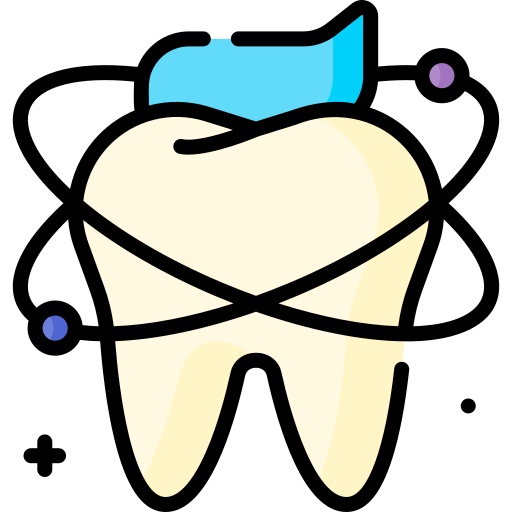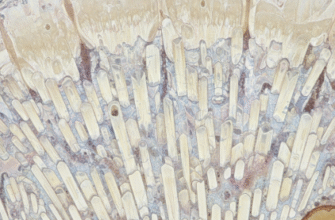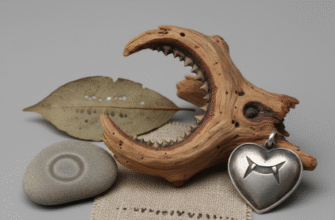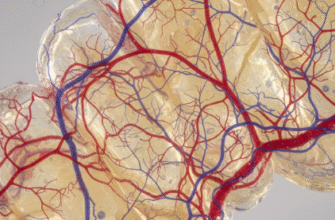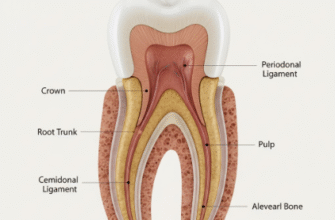Ever wonder if that apple a day really keeps the doctor away, especially the one wielding tiny mirrors and pointy tools? Well, when it comes to your pearly whites, what you munch on plays a starring role. It’s not just about dodging sugary villains; certain foods are like secret superheroes for your smile, working behind the scenes to keep your teeth strong and your gums happy. Think of your mouth as a tiny, bustling city – the food you eat provides the building materials and the maintenance crew.
Crunchy Champions: Nature’s Toothbrushes
Some of the best allies for your oral health are probably already chilling in your fruit bowl or crisper drawer. We’re talking about firm, crunchy fruits and vegetables. These guys are fantastic because they act like nature’s own little toothbrushes.
Apples, Carrots, and Celery: The Scrubbing Trio
When you bite into a crisp apple or a crunchy carrot stick, the fibrous texture helps to scrub away plaque and food particles from the surface of your teeth. It’s like a mini-cleaning session with every bite! Celery, with its high water content and stringy texture, is another fantastic scrubber. Chewing these foods also stimulates saliva production. Saliva is your mouth’s natural defense mechanism; it neutralizes harmful acids produced by bacteria and helps rinse away food debris. So, that satisfying crunch is actually doing double duty for your dental well-being.
Think of it this way: soft, sticky foods tend to cling to teeth, giving bacteria a feast. Crunchy foods, on the other hand, are more likely to sweep things clean. Plus, they’re packed with other vitamins and minerals beneficial for overall health, which indirectly supports a healthy mouth. Opting for these natural snacks can be a simple yet effective way to boost your oral hygiene between brushings.
Building Blocks: Calcium and Phosphorus Power
Your teeth are largely made of minerals, and keeping those mineral levels topped up is crucial for strength and resilience. Calcium and phosphorus are the dynamic duo when it comes to fortifying your enamel, the hard outer layer of your teeth that acts as the first line of defense against decay.
Dairy Delights (and their alternatives!)
Milk, cheese, and yogurt are well-known calcium champions. Cheese is particularly interesting because it can also help raise the pH level in your mouth, creating a less acidic environment which is less hospitable to cavity-causing bacteria. The proteins in dairy, like casein, also play a role in protecting enamel. If dairy isn’t your thing, or if you’re looking for plant-based options, don’t fret! Leafy green vegetables like kale, spinach, and collard greens are excellent plant-based sources of calcium. Fortified plant milks (like almond, soy, or oat) can also be good options, as can fortified tofu.
Phosphorus Providers
Phosphorus works hand-in-hand with calcium to build strong bones and teeth. You can find this essential mineral in protein-rich foods such as eggs, fish (especially salmon and tuna), lean meats, and poultry. Nuts, particularly almonds and cashews, and seeds like pumpkin or sesame seeds, are also good sources. Ensuring you have enough phosphorus in your diet helps your body effectively utilize calcium to repair and maintain tooth enamel, keeping it robust and resistant to daily wear and tear.
Verified Insight: Enamel is the hardest substance in the human body, but it’s not invincible. Consuming foods rich in calcium and phosphorus regularly helps to remineralize teeth, essentially repairing microscopic weak spots before they can turn into cavities. This natural repair process, supported by a balanced diet, is vital for long-term dental health and preventing enamel erosion.
Gum Guardians: The Vitamin C Connection
A healthy smile isn’t just about strong teeth; your gums play an equally important role in anchoring those teeth and protecting their roots. Healthy gums are firm, pink, and don’t bleed easily when you brush or floss. Vitamin C is a key nutrient for maintaining gum health because it’s essential for collagen production.
Collagen is a protein that helps keep your gums strong and resilient, forming the connective tissue that holds your teeth in place and maintains the integrity of your gum lining. A deficiency in Vitamin C can lead to weaker gums that are more susceptible to inflammation and problems. So, where can you find this vital vitamin to keep your gums in fighting shape?
Citrus and Beyond: Vitamin C Hotspots
Citrus fruits like oranges, grapefruits, and lemons are famous for their Vitamin C content. However, due to their acidity, it’s wise to consume them as part of a meal rather than on their own, and perhaps rinse your mouth with plain water afterward to minimize acid exposure to your enamel. Don’t just stop at citrus, though! Bell peppers (especially red ones), strawberries, kiwis, broccoli, Brussels sprouts, and even potatoes are excellent sources of Vitamin C. Including a colorful variety of these fruits and vegetables in your diet will help ensure your gums get the support they need.
The Sunshine Vitamin’s Smile Support: Vitamin D
Vitamin D often gets called the “sunshine vitamin,” and its role in bone health is well-established. But did you know it’s also crucial for your oral health, working in tandem with other nutrients? Vitamin D plays a critical role because it helps your body absorb calcium effectively. Without enough Vitamin D, all that calcium you’re consuming from dairy or leafy greens might not be put to its best use protecting and strengthening your teeth and jawbone.
You can get Vitamin D from sensible sun exposure (safely, of course, and this varies by location and skin type!), but it’s also present in certain foods. Fatty fish like salmon, mackerel, and herring are good natural sources. Egg yolks also contain some Vitamin D. Many foods are fortified with Vitamin D these days, including some dairy products, plant milks, orange juice, and breakfast cereals. It’s always a good idea to check the labels to see if your favorite foods offer this smile-supporting nutrient, contributing to overall mineral balance for your teeth.
Water: The Unsung Hero of Oral Hygiene
It might seem too simple to be a top contender, but good old water is one of the best beverages for your mouth, bar none. Unlike sugary drinks that fuel bacteria or acidic juices that can erode enamel, water cleanses your mouth with every sip. It helps wash away food particles, dilute sugars, and neutralize lingering acids that bacteria love to feed on, thereby reducing the risk of cavities.
Staying adequately hydrated is also absolutely essential for robust saliva production. As we’ve mentioned, saliva is a true oral powerhouse – it neutralizes harmful acids, contains enzymes that begin the digestive process right in your mouth, and is rich in minerals like calcium and phosphate that help remineralize and strengthen your teeth. If you’re exercising, in a dry environment, or simply throughout your day, make sure to drink plenty of water to keep your saliva flowing and your mouth feeling fresh, clean, and well-protected. Choosing water over sugary or acidic alternatives is a simple yet profoundly impactful switch for your dental health over time.
A Word on What to Watch Out For
While focusing on beneficial foods is a fantastic strategy for a healthier smile, it’s also sensible to be mindful of items that can pose challenges to your dental health. This isn’t about enforcing complete restriction or creating food fear, but rather about promoting awareness and encouraging moderation for a balanced approach.
Foods high in sugar – like candies, cookies, pastries, and sugary sodas or fruit juices – are well-known culprits. Bacteria thriving in your mouth readily convert these sugars into acids, which then relentlessly attack your tooth enamel, leading to demineralization and eventually cavities. Sticky foods, such as caramels, taffy, or even some dried fruits if not consumed carefully, can be particularly troublesome as they cling to teeth and get into crevices for extended periods. This prolongs the acid exposure and gives bacteria more time to do damage. Even seemingly healthy but highly acidic foods and drinks, like citrus juices consumed in large quantities, sports drinks, or vinegar-based dressings, can erode enamel if consumed too frequently or if you don’t rinse your mouth with water afterward. The overarching key is balance, moderation, and pairing these with good oral hygiene practices soon after consumption.
Important Note: While diet plays a significant and undeniable role in oral health, it’s a crucial partner to consistent, good oral hygiene practices. Brushing thoroughly twice a day with fluoride toothpaste, flossing daily to clean between teeth, and attending regular dental check-ups and cleanings are absolutely indispensable for maintaining a healthy smile. These food tips are designed to complement and support, not replace, professional dental advice and care from your dentist or dental hygienist.
The Sweet Surprise: Xylitol Chewing Gum
If you enjoy chewing gum, there’s a way to make this habit work for your teeth rather than against them. Opting for a sugar-free variety that specifically contains xylitol can actually be beneficial for your dental health. Xylitol is a natural sweetener, a sugar alcohol, that oral bacteria cannot metabolize or ferment. This means they can’t produce those harmful, enamel-eroding acids when exposed to it. In fact, studies suggest that xylitol can even help reduce the levels of decay-causing bacteria, like Streptococcus mutans, in plaque and saliva.
Beyond xylitol’s direct effects on bacteria, the very act of chewing gum stimulates saliva flow. And as we’ve established, increased saliva is great for neutralizing acids, washing away food particles, and delivering remineralizing minerals to your teeth. So, if you’re looking for a convenient post-meal freshen-up when you can’t brush immediately, a stick of sugar-free xylitol gum can be a handy and surprisingly effective helper for your smile. Just remember, it’s an aid and a supplement to your routine, not a substitute for thorough brushing and flossing.
Crafting a diet that actively supports a healthy, vibrant smile doesn’t have to be an overly complicated or restrictive endeavor. By consciously incorporating a wide variety of crunchy fruits and vegetables, calcium and phosphorus-rich foods, sources of essential vitamins like C and D, and plenty of plain water, you’re providing your teeth and gums with the fundamental nutrients they need to stay strong, resilient, and disease-free. Think of your daily food choices as an ongoing, positive investment in your long-term oral health, one delicious and thoughtful bite at a time. When you nourish your body well from the inside, your smile will undoubtedly thank you for it, shining brightly and confidently for many years to come.
